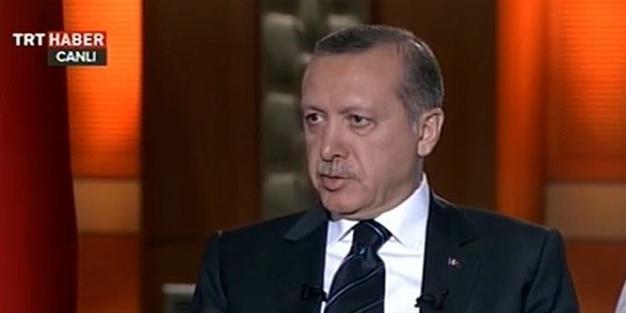Public broadcaster TRT at center of contention during campaign
ANKARA
 The use of public funds for Prime Minister Recep Tayyip Erdoğan’s presidential bid was a constant matter of contention during the campaign, with the other two candidates as well as a wide segment of the society criticizing the controversy. Nonetheless, public broadcaster Turkish Radio and Television Corporation’s (TRT) policy during the presidential campaign has been the most contentious issue.
The use of public funds for Prime Minister Recep Tayyip Erdoğan’s presidential bid was a constant matter of contention during the campaign, with the other two candidates as well as a wide segment of the society criticizing the controversy. Nonetheless, public broadcaster Turkish Radio and Television Corporation’s (TRT) policy during the presidential campaign has been the most contentious issue.Both joint opposition candidate Ekmeleddin İhsanoğlu and Peoples’ Democracy Party (HDP) co-leader Selahattin Demirtaş have constantly criticized TRT, with the latter frequently resorting to sarcastic language personally against TRT executive İbrahim Şahin.
But both Şahin and the executives of the Turkish media watchdog, the Radio and Television Supreme Council (RTÜK), have been resolute in their defiance, arguing that there was nothing wrong in broadcasting all of Erdoğan’s rallies and statements live and uninterrupted, despite several complaints filed by the opposition parties against TRT and its executive.
The controversy over TRT’s practice didn't go unnoticed by Europe’s security body which deployed a mission to observe the first direct presidential election in this country.
“The legal framework on the media during the campaign obliges the public service and commercial broadcasters to abide by the principles of ‘impartiality, truthfulness and accuracy.’ The law does not establish a clear and public monitoring and reporting regime between the Radio and Television Supreme Council as the monitoring body, and the YSK [the Supreme Election Board] as the sanctioning body.
According to information received from the RTÜK and YSK, the RTÜK only reports to the YSK when an RTÜK-monitor notes a violation committed by a broadcaster,” said an interim report released on July 31 by a Limited Election Observation Mission (LEOM) deployed by the Office for Democratic Institutions and Human Rights (ODIHR) of the Organization for Security and Cooperation in Europe (OSCE).
“Neither the law nor YSK decisions provide guidelines on the implementation of the impartiality requirement. The OSCE/ODIHR LEOM has received contradictory interpretations of the impartiality requirement by different members of the RTÜK. A complaint filed on July 3 by four RTÜK members, nominated by opposition parties, over the partial coverage of Mr. Erdoğan on the public service broadcaster, the Turkish Radio and Television Corporation, was voted against by the five RTÜK members nominated by the ruling party. A further three complaints on the partial coverage of TRT have been filed with the YSK and the Prosecutor's Office,” the OSCE delegation further elaborated.
‘Normal’ according to media watchdog
According to figures provided on July 12 by RTÜK Deputy President Hasan Tahsin Fendoğlu, in the first days of the campaigning between June 29 and July 10, Erdoğan appeared on the public broadcaster’s news channel TRT Haber for 559 minutes, while İhsanoğlu was only covered for 137 minutes and Demirtaş just 18 minutes.
However, Fendoğlu said such a division of airtime should be considered normal. “One of the candidates is only a party head, the other is only a presidential candidate, but [Erdoğan] is a candidate, a prime minister and a party head. He has three characteristics,” Fendoğlu said at the time, suggesting that the media was broadcasting “what was worth as information.”
Warning or threat?
On July the head of TRT personally pledged to stop airing Demirtaş, if he continued to accuse the channel of one-sided coverage during live broadcasts of his rallies.
“We will cut broadcasts if these heavy accusations continue to be expressed in live coverage,” Şahin said, calling Demirtaş’s criticism “very unfortunate,” and claiming that the nation was watching closely those who make excuses centering on the channel since they “already see themselves as the losers.”
Sarcasm as a tranquilizer
Demirtaş had promised to “deal with” Şahin after Eid al-Fitr, but also took to the station’s airwaves in early August to attack the partial coverage with irony.
“With little to go until the presidential elections, I am experiencing excitement and happiness to be addressing you from the screens of the TRT, [a channel] that you all follow closely and which is absolutely impartial, objective and equidistant from all candidates and which, above all, is a precious institution that has displayed justice and courtesy to me in the most magnificent fashion,” Demirtaş said during an address broadcasted on TRT on Aug. 3,
His address was part of a legal framework obliging TRT to broadcast all candidates. The legal framework granted each candidate a total of 30 minutes of free airtime on TRT (15 minutes on Aug. 3 and Aug. 9), and the right to purchase advertising time and space under equal conditions.
















